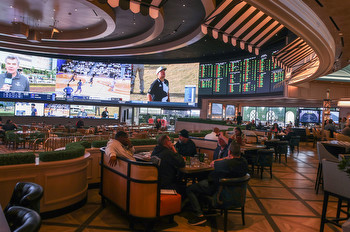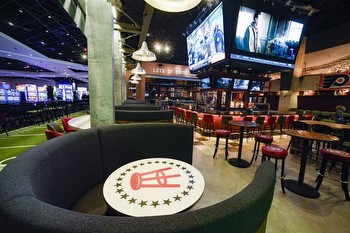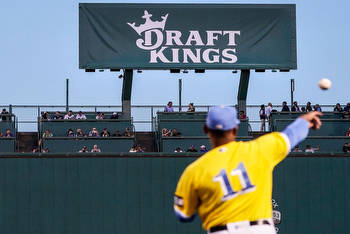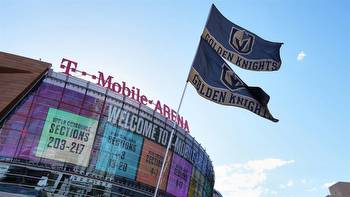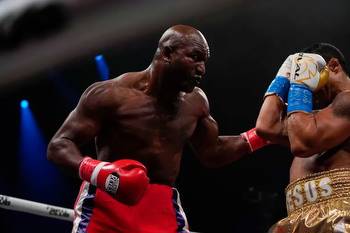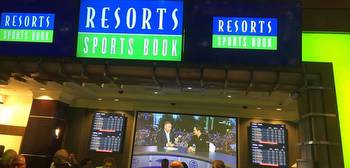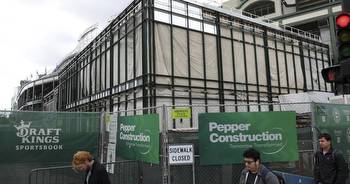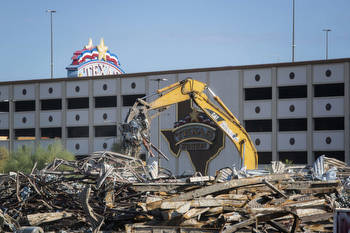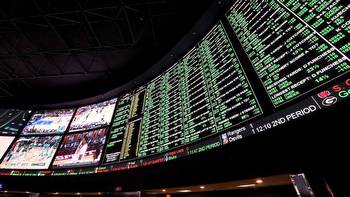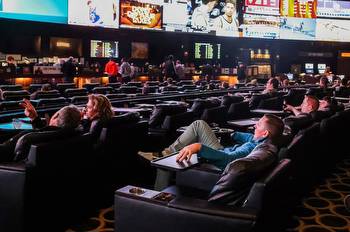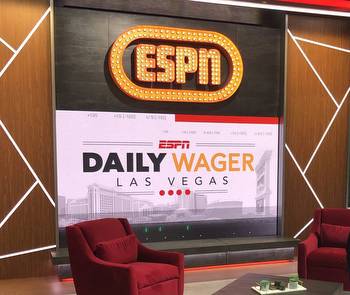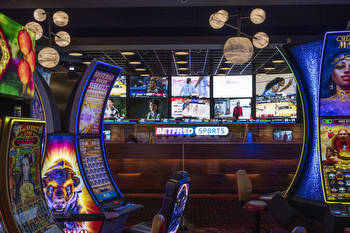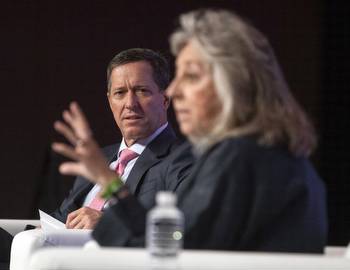Schuetz: Palpable Errors In Sports Betting
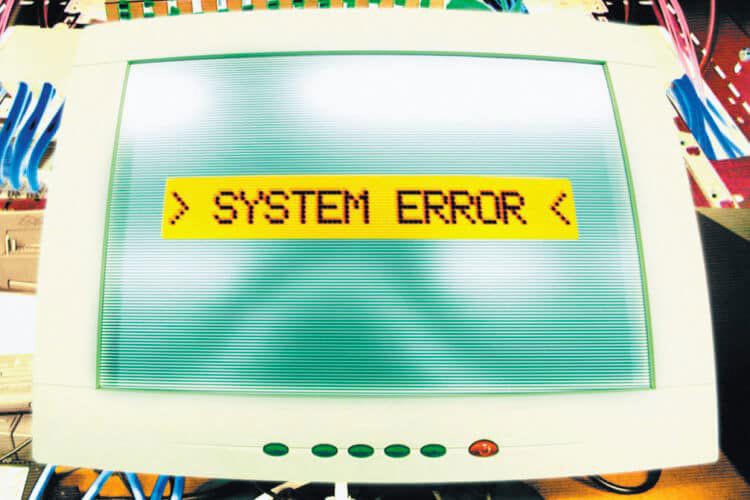
The U.S. has thankfully avoided adopting certain products from the United Kingdom. Such items as jellied eels, haggis, and Marmite come to mind, and I can safely say that the U.S. is a better place for generally not embracing these items from our friends across the water.
Another item from across the pond that the U.S. would be better off avoiding is the notion of “palpable error” as a condition with respect to sports betting.
During the Great Recession some 15 years ago, a topic discussed at length was the notion of “moral hazard.” In essence, what was becoming evident as the Great Recession evolved was that the banking industry could make some very high-risk and/or stupid decisions, and if these decisions resulted in losses, the federal government would step in and rescue the bank. There were few consequences if banks were careless or sloppy in their lending practices, for they were always working with a safety net.
In essence, moral hazard allows an entity to benefit if a high-risk decision works out, while there is little, if any, harm to the firm if the decision fails. This absence of a negative feedback loop in the decision processes of a business can lead to sloppy work, for the entity always has a backstop.
The basic proposition of a palpable error in betting is that if an operator offers the betting public a wager that was obviously a mistake, the operator can decide to hold itself unaccountable. Oh, and the operator feels it is best suited to make this decision.
Sometimes the betting operator discovers the error before the contest takes place. The real problem arises when the error is discovered after the contest — and the player has won.
One ‘obvious error’ leads to another
A notable example of this happened recently when a bettor named Kris Benton of Fairfax County, Virginia, made $3,250 worth of parlay wagers on the Women’s World Cup that hit, and the calculated value on the tickets was $214,500. Or at least that was their value until the operator, BetMGM, notified Benton that he would not be paid, and the reason he would not be paid was a provision of BetMGM’s terms and conditions that suggested they need not pay on an “obvious error.”
Now, I am sure that many of you would like to have an “obvious error” escape hatch in your lives. It would be quite convenient to be able to escape liability for any asset losses or expenses in, for instance, a divorce, based on our own determination that marrying the person was an obvious error. Hey, give me my mulligan.
This determination by BetMGM did not go unnoticed, and the story was heavily discussed in both traditional and social media — and BetMGM did not win any popularity contests for its initial decision. After nearly three weeks of media criticism, the company relented and deposited the winnings from the bet in Benton’s account. In short, BetMGM acknowledged its use of the “obvious error” notion was, in fact, another obvious error — at least in the realm of public relations.
What is perhaps of most interest here is that this wasn’t the first instance of an operator declining a payment, holding out and extending the bad publicity that followed the decision, and then relenting and paying off the bet. In 2018, DraftKings utilized this approach, followed by FanDuel that same year. Just last week, PENN Entertainment’s mobile sportsbooks experienced a pronounced technical error, though it’s too soon to say whether the operator will be end up paying bettors in any states for that one.
But in the case of BetMGM, FanDuel, and DraftKings, at least, the brain trusts made initial decisions that not only did damage to their own own brands, but also damaged the reputation of the industry.
One-way street
One of the problems with the palpable error concept is that it appears to be asymmetrical in its application. I would guess that had Benton’s bet lost, the operator would not have contacted him after the contest, stating that, in looking over the losing bets of players, the sportsbook had discovered this obvious error and reimbursed his account for the amount of the wager.
The use of the palpable error clause seems to be a “heads we win, tails you lose” proposition.
Also, as the well-known bettor and advantage player Captain Jack Andrews has suggested, it is often hard to distinguish between a palpable error and a culpable error. A palpable error is allegedly an accident, whereas a culpable error is at least partially related to the conduct of the operator. In other words, one could argue a so-called palpable error can result from sloppy work, and the likelihood of this occurring is increased as the penalty for performing sloppy work is decreased. It is that moral hazard thing.
One advantage of having palpable errors eaten by the firm is that requiring responsibility acts as a sloppy tax. To avoid paying this sloppy tax, the firm has a strong incentive for better policies, people, and controls.
The current model of having a firm utilize an “obvious error” clause for a period of time and then relenting does not seem to be too smart. It is often tried and mainly fails to do anything other than hurt businesses’ reputations.
There are a number of related expressions that fit here, and they run along the lines of, “If you keep doing what you are doing, you are going to keep getting what you have gotten.”
What would Nevada do?
Whenever I am confronted with silly gaming industry behavior, I generally look to ascertain how Nevada would have handled the situation. I am not saying Nevada always has the best solution, but the regulatory scheme there has been around for a long time.
Nevada legalized gambling in 1931 and began light oversight of the industry in 1945 by the Nevada Tax Commission. This materially changed with the establishment of the Nevada Gaming Control Board in 1955 and was followed by the establishment of the Nevada Gaming Commission in 1959.
Recall that Nevada was the only state that had a significant presence in gambling at this time, and that remained true until the May 1978 opening of Resorts International in Atlantic City.
This gives Nevada an almost grandfather status as a regulatory agency, and there is logic to looking to an institution that has a long history in the business. This is especially true with the large number of young jurisdictions that have introduced sports wagering since the repeal of PASPA, given the reality that the regulators have very little experience with or knowledge about what they are regulating.
Nevada has long had a dispute resolution process that states that if there is a dispute between an operator and a patron that cannot be resolved and involves at least $500, it must be reported to the Gaming Control Board. If it is less than $500, the operator must notify the customer that the customer can still seek relief from the board.
I am well aware of this, for I spent an appreciable portion of my life involved in managing Nevada casinos, and this often involved working to resolve patron disputes. During a typical day in a Nevada casino, there are hundreds of thousands of transactions taking place. Moreover, many of the patrons have been drinking, and they may be suffering a bit of anxiety over their losses. This type of environment is ideal for generating complaints.
With a regulation such as the one offered by the state of Nevada, you learn to resolve disputes quickly, for in a casino, time is money. Moreover, once the board becomes involved, costs immediately begin escalating. If the board is contacted, the firm needs to alert the legal folks and the compliance folks, and these are two expensive departments in a casino organization. It also results in more paperwork, and no true casino person wants to deal with the paperwork.
These factors ensure that casino floor operators work to resolve complaints quickly and avoid the need to involve gaming control personnel, especially if the disputes are in the three- to four-digit range. The bigger ones take more thought, and generally, the really big ones involve slot machine jackpots, and the issue here is potential machine malfunction.
Independent arbiter required
A benefit of all of this is that the decision then falls to the regulator, and this takes some of the heat off of the operator. Moreover, the regulator is considered a fairer judge of the incident than the operator, for the regulator does not have a financial interest in the outcome.
The only suggestion I would add to all of this that does not exist in the Nevada reg package is that I feel the regulator needs to inform both parties every 15 days as to the status of the investigation. I would also advise that the inexperienced regulator should not be too quick to conclude that the operator’s terms and conditions are an automatic get-out-of-jail-free card. That response, without any calculation for situational reasonableness and fairness, is just another incentive for operator sloppiness.
A number of other states have either copied the Nevada dispute resolution process or developed their own variant. It is all you need to handle situations such as those that are caused by obvious errors.
To the sports betting industry, I say that the way you have been handling such disputes is stupid. If you continue to follow this pattern, you will soon be a case study on public relations insanity. Your model of marching off to war, wasting time getting beaten up, allowing the industry itself to get taken down in the fight, and then surrendering is not good business. It is as if you are in a game theory matrix and will only accept lose-lose propositions.
My suggestion: Use a dispute process such as that developed in Nevada and other jurisdictions — and drop the “palpable error” nonsense.


